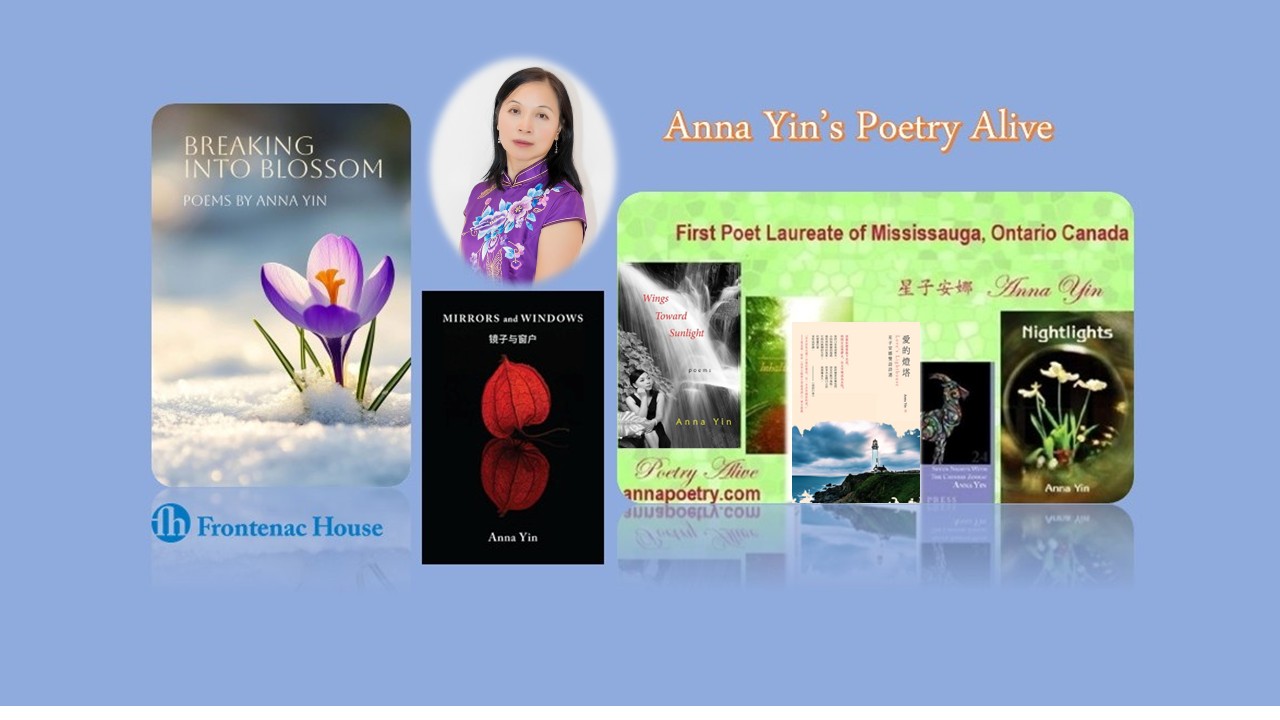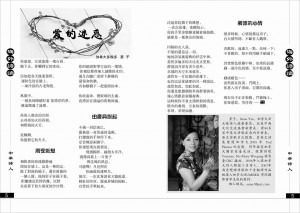你这样问,我并不惊奇。
我也这样问自己,为什么?
我曾经冬眠在雪下,
白色的纯净我以为我可以忘记。
为什么还在写?
那些白蝴蝶追着我。
我看见你的影子,看见薄雾的飘舞。
从冰封的河面下传来湍流声,
不曾忘怀夏夜,秋日以及大海。
总是避免触及
飞鸟,花瓣,月色,剑鞘。
它们在我的梦境游离,
在我的肌肤刻下的印痕
就好比你。 我固执地把你写进故事,
以为一瞬就是永恒,我即你,
而你即我,一面镜子,一潭碧湖,
我把自己收进你澄澈的眼睛里。
你问我,追寻什么?等待什么?
我无法告诉你。
有一天,也许我们会清楚。
对于未来,因为无法了解,才彰显它的美丽,
对于过往,因为书写,才让我们相依一起。
2)
时间在这里可以静止,
也可以永恒。
文字铺开无垠的道路,
黑夜是梦想的船舱。
更多的时候,
你是我存在的见证,
我成为你的载体。
一切可以重新塑造,
生命也可以不停不息。
如果离开,我不再存在,
但我的脚印还会留下来,
成为永恒或者静止。
3)
翻开我,你读到了什么?
种子落下,
你根植什么?
现在我写的时候,
想到的是你–
叶子和根,以及
缺水的鱼。
其实我不应该提到鱼,
黎明前走失的一只猫
一直在眼前晃动。
昨晚我翻到威廉
金色的老虎,
下一页跳过去,却是
病了的玫瑰。
望着窗外,
我明白我不是你的唯一。
天空总是广阔,
方墙内我不能
禁锢你的飞翔。
我宁意静看
叶子落下,
风把它们带走。
4)
我已经不再抱怨别人,
我们又了解自己多少?
每个人都在不停地挖掘,
手里和心里抓住的又是什么?
距离有时只是借口,
等真正放手的时候
却已是空空。
赤条条地来,
再赤条条地去;
更多的人留下的却是
不曾卸下的面具。
而天上的飞鸟,
多少次我们看成上帝的游泳裤?

